
Bundala National Park: A Haven for Wildlife Enthusiasts
Bundala National Park is a paradise for nature lovers and wildlife enthusiasts. Located in the southern part of Sri Lanka, this UNESCO biosphere reserve is a hidden gem that offers visitors a chance to witness the country's rich biodiversity. The park spans over 6,000 hectares and is home to a variety of ecosystems, including lagoons, marshes, and scrublands, making it a unique destination for birdwatching and wildlife photography. The park is renowned for its vibrant birdlife, with over 200 species of birds recorded, including migratory species from as far as Siberia. The highlight of any visit is the sight of the greater flamingos, which flock to the park in large numbers. In addition to birds, Bundala is also home to a diverse range of animals, including elephants, crocodiles, and various species of deer and monkeys. A safari through the park offers an unforgettable experience, allowing you to get up close with these magnificent creatures in their natural habitat. Aside from its wildlife, Bundala National Park also offers stunning landscapes and serene surroundings. The park's lagoons and wetlands create a picturesque setting, perfect for relaxing and soaking in the beauty of nature. Whether you're an avid birdwatcher, a wildlife photographer, or simply someone looking to escape the hustle and bustle of city life, Bundala National Park is a must-visit destination that promises a memorable and enriching experience.
Local tips in Bundala National Park
- Best time to visit is from November to March when migratory birds are present.
- Early morning or late afternoon safaris offer the best chances to see wildlife.
- Wear light, comfortable clothing and bring plenty of water and sunscreen.
- Hiring a local guide can enhance your experience and help spot elusive wildlife.
- Carry binoculars and a good camera for birdwatching and photography.
Bundala National Park: A Haven for Wildlife Enthusiasts
Bundala National Park is a paradise for nature lovers and wildlife enthusiasts. Located in the southern part of Sri Lanka, this UNESCO biosphere reserve is a hidden gem that offers visitors a chance to witness the country's rich biodiversity. The park spans over 6,000 hectares and is home to a variety of ecosystems, including lagoons, marshes, and scrublands, making it a unique destination for birdwatching and wildlife photography. The park is renowned for its vibrant birdlife, with over 200 species of birds recorded, including migratory species from as far as Siberia. The highlight of any visit is the sight of the greater flamingos, which flock to the park in large numbers. In addition to birds, Bundala is also home to a diverse range of animals, including elephants, crocodiles, and various species of deer and monkeys. A safari through the park offers an unforgettable experience, allowing you to get up close with these magnificent creatures in their natural habitat. Aside from its wildlife, Bundala National Park also offers stunning landscapes and serene surroundings. The park's lagoons and wetlands create a picturesque setting, perfect for relaxing and soaking in the beauty of nature. Whether you're an avid birdwatcher, a wildlife photographer, or simply someone looking to escape the hustle and bustle of city life, Bundala National Park is a must-visit destination that promises a memorable and enriching experience.
When is the best time to go to Bundala National Park?
Iconic landmarks you can’t miss
Bundala national park
Discover the breathtaking biodiversity of Bundala National Park, a paradise for wildlife enthusiasts and birdwatchers in Sri Lanka's stunning landscapes.
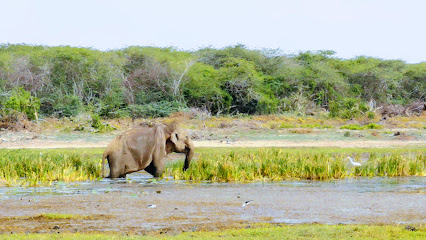
Bundala Safari with Srimal
Experience the thrill of Bundala Safari with Srimal, where diverse wildlife and stunning landscapes await in Sri Lanka's premier safari destination.
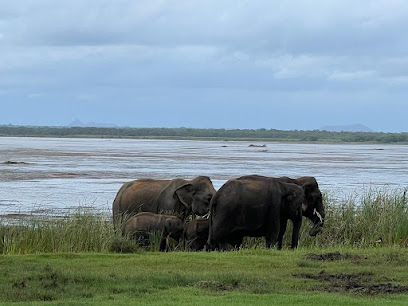
Kamal safari bundala park
Discover the vibrant wildlife and stunning landscapes of Kamal Safari Bundala Park, a top destination for nature enthusiasts in Sri Lanka.
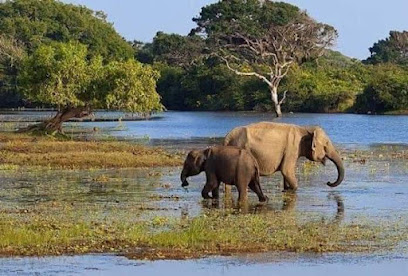
Bundala Pradeep Safari
Explore Bundala Pradeep Safari, Sri Lanka's wildlife haven, rich in biodiversity and unforgettable safari experiences amidst breathtaking landscapes.
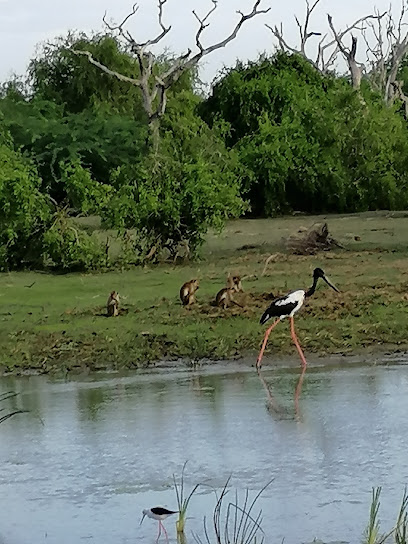
Bundala safari
Discover the mesmerizing wildlife and scenic beauty of Bundala Safari, a UNESCO Biosphere Reserve in Sri Lanka.
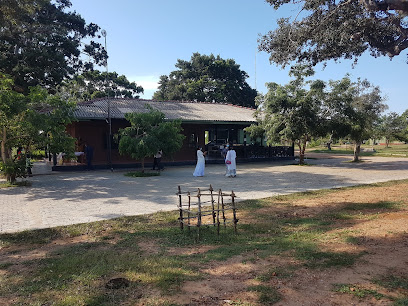
Bundala National Park Entrance
Explore the rich biodiversity of Bundala National Park, a must-visit destination for nature lovers and wildlife enthusiasts in Sri Lanka.
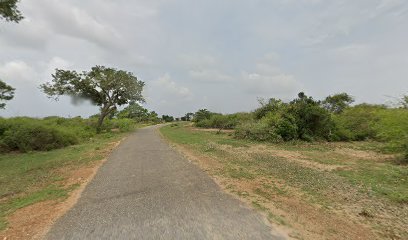
Unmissable attractions to see
Dry Zone Botanic Gardens, Hambantota
Discover the enchanting beauty of Sri Lanka's Dry Zone Botanic Gardens in Hambantota, where diverse flora meets serene landscapes in a tranquil setting.
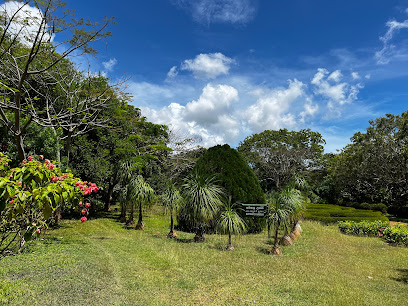
Madunagala Hot Water Spring
Experience the healing warmth of Madunagala Hot Water Spring, a serene retreat amidst the lush landscapes of Southern Sri Lanka.
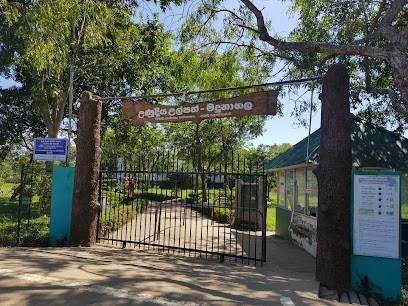
Ussangoda National Park
Discover the stunning landscapes and rich biodiversity of Ussangoda National Park, a hidden gem on Sri Lanka's southern coast.
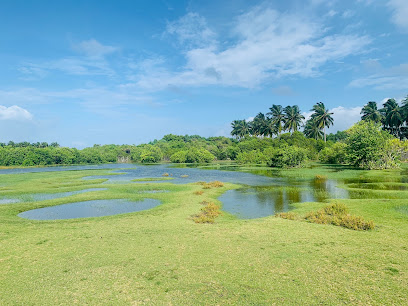
Bundala national park
Explore Bundala National Park, a wildlife haven in Sri Lanka, famous for its diverse bird species and breathtaking landscapes.
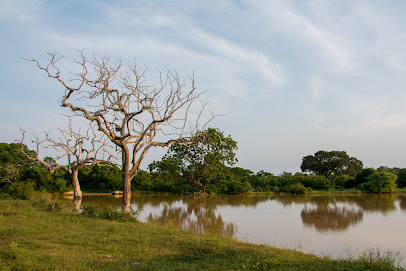
Hambantota Beach
Experience the tranquil beauty and vibrant culture of Hambantota Beach, a hidden gem on Sri Lanka's southern coast, perfect for relaxation and adventure.
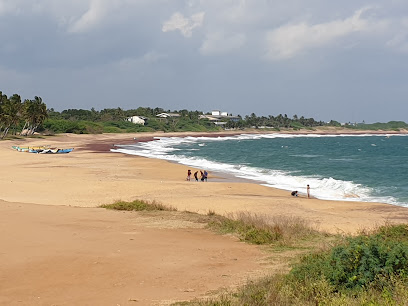
Roshan Safari
Discover the wonders of wildlife in Sri Lanka at Roshan Safari, where unforgettable adventures and breathtaking landscapes await every visitor.
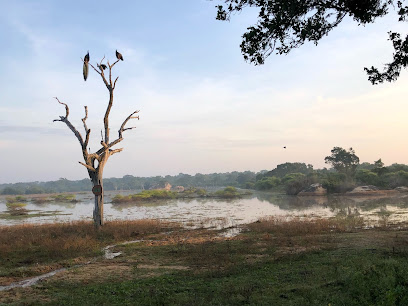
Isuru Safari Day Tours
Discover the unparalleled wildlife of Sri Lanka with Isuru Safari Day Tours, where adventure meets nature in the heart of Tissamaharama.
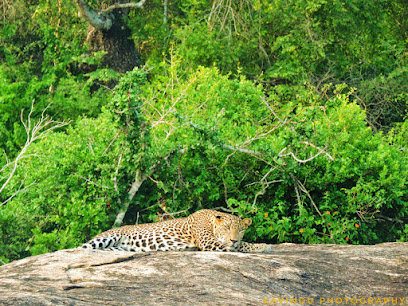
Fruit bats View Point
Experience the breathtaking spectacle of fruit bats at the Fruit Bats View Point in Tissamaharama, a must-visit for wildlife enthusiasts and nature lovers.
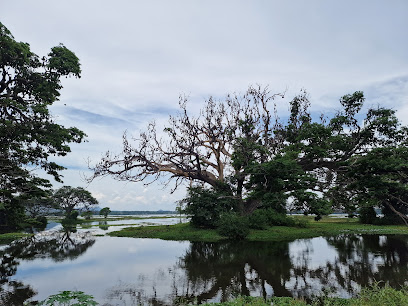
Tissa Lake View point
Discover the stunning Tissa Lake View Point, a serene escape offering breathtaking views and a tranquil atmosphere in Tissamaharama, Sri Lanka.
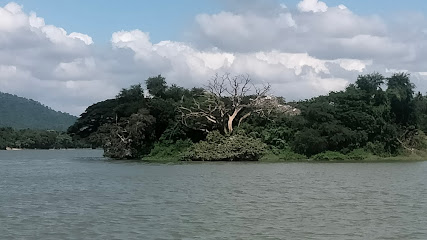
Yala Beach
Discover Yala Beach, a serene coastal paradise in Sri Lanka, offering stunning landscapes, vibrant wildlife, and unforgettable adventures.
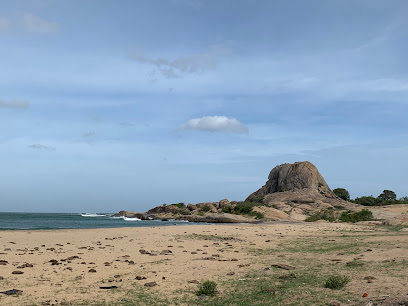
Yahangala Archaeological Ruins
Uncover the secrets of ancient civilizations at the Yahangala Archaeological Ruins in Weligatta, a fascinating Buddhist temple and tourist attraction.
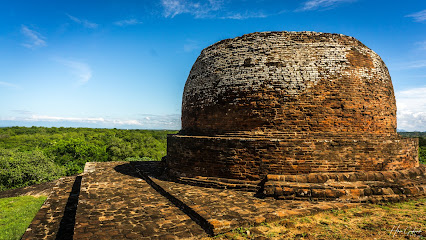
Lighthouse - Hambantota
Discover the breathtaking views and rich history at the iconic Lighthouse of Hambantota, a must-visit attraction on Sri Lanka's southern coast.
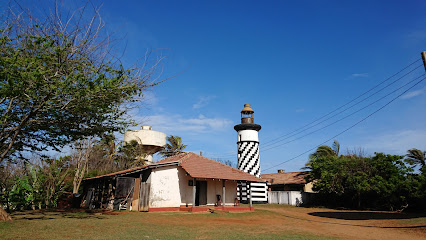
Yala Leopard Eye Safari
Discover the thrill of wildlife at Yala Leopard Eye Safari, where you can observe majestic leopards and diverse ecosystems in Sri Lanka.
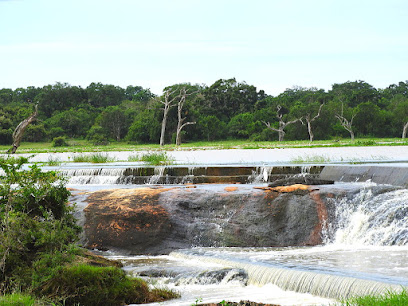
Bundala Pradeep Safari
Discover the breathtaking wildlife of Bundala Pradeep Safari, a premier wildlife and safari park in Sri Lanka, rich in biodiversity and stunning landscapes.
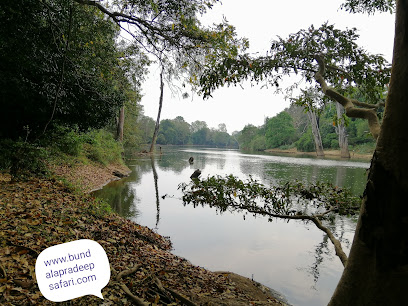
Yala Block Six Safari
Explore Yala Block Six Safari, a wildlife haven in Sri Lanka, where breathtaking views and unforgettable encounters with nature await.
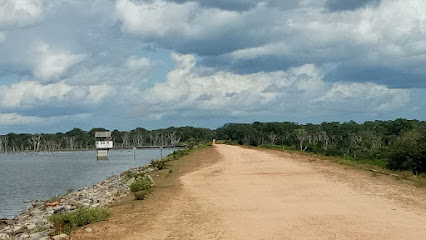
Essential places to dine
Nihal Family Restaurant - Pasyala
Discover delightful family dining at Nihal Family Restaurant in Pasyala – where authentic flavors meet warm hospitality.
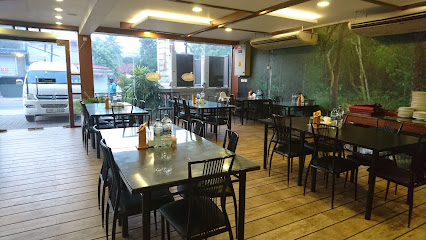
Refresh Seafood Restaurant
Discover fresh seafood delights at Refresh Seafood Restaurant near Yala National Park - a must-visit dining destination for every traveler.
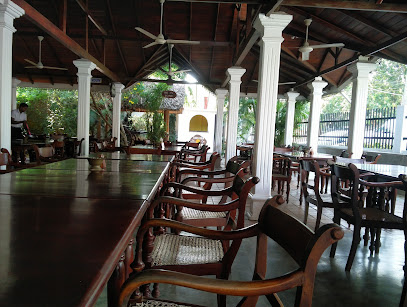
Smoky Kitchen
Discover the authentic flavors of Sri Lanka at Smoky Kitchen in Tissamaharama—where every bite tells a story.
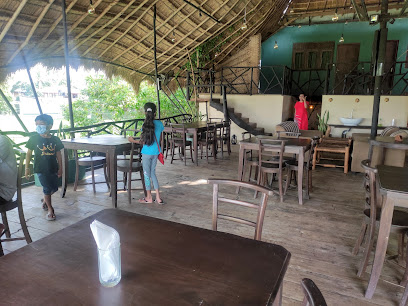
Malu Poke
Discover nutritious delights at Malu Poke in Dikwella—where health meets flavor in every delicious bowl.
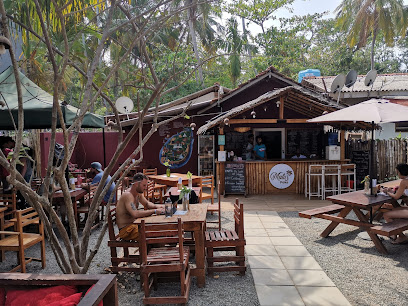
Ruhunu Resort
Discover culinary delights at Ruhunu Resort in Ambalantota - where local flavors meet modern dining experiences.
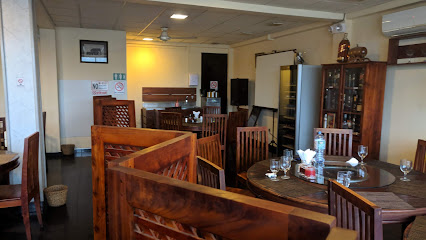
Vintage Restaurant
Discover the flavors of Sri Lanka at Vintage Restaurant in Bentota - where tradition meets taste in an inviting atmosphere.
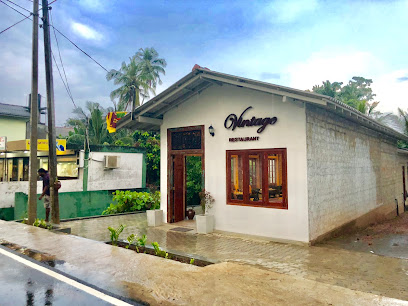
U-Point Restaurant
Experience authentic Sri Lankan cuisine at U-Point Restaurant in Kalametiya, where breathtaking views meet delicious flavors.
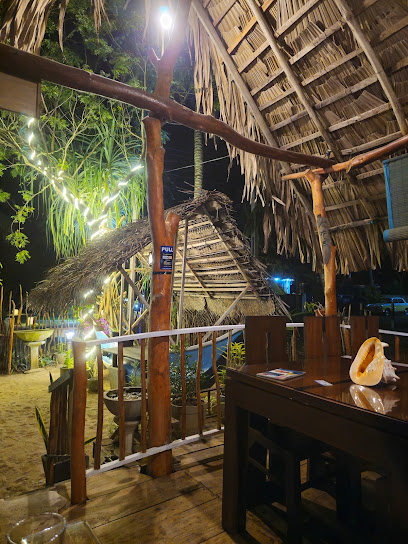
Athula Restaurant
Experience authentic Sri Lankan cuisine at Athula Restaurant in Dambulla – where every dish tells a story.
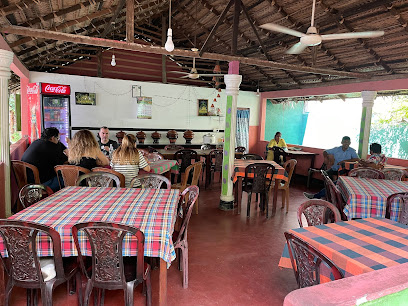
Jade Green Boutique Hotel & Restaurant
Experience luxurious coastal living at Jade Green Boutique Hotel & Restaurant with exquisite seafood and authentic Sri Lankan flavors in Hambantota.
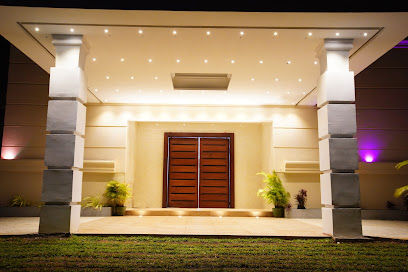
Malli's Seafood Restaurant
Experience exquisite seafood dining at Malli's Seafood Restaurant in Bentota - where fresh flavors meet fine dining.
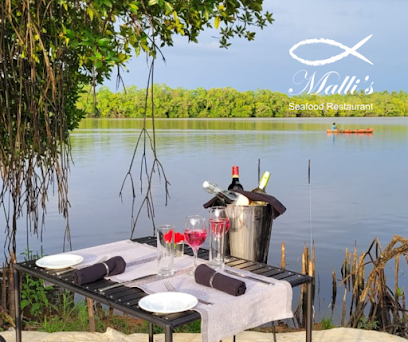
The Fine Dine
Experience authentic Sri Lankan flavors at The Fine Dine in Tangalle - where delicious cuisine meets warm hospitality.
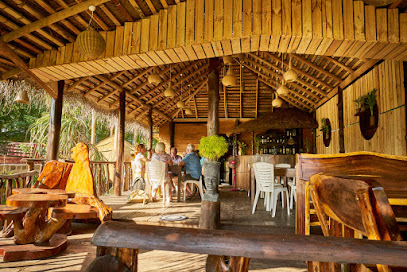
Sun flower Restaurant
Discover the flavors of Sri Lanka at Sun Flower Restaurant, where fresh seafood meets warm hospitality in Beruwala.
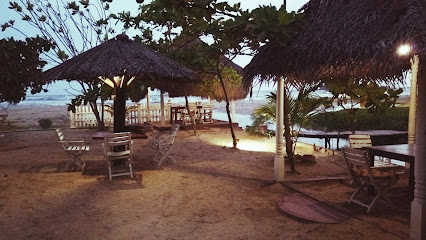
Maheshee Home Restaurant
Experience authentic Sri Lankan flavors at Maheshee Home Restaurant in Tangalle - where culinary tradition meets warm hospitality.
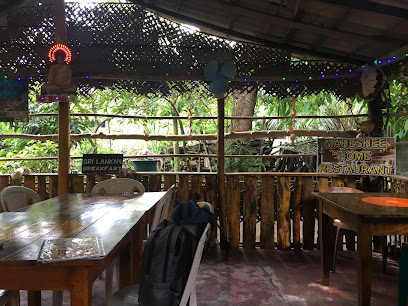
CORAL REEF SEA FOOD RESTAURANT(we have green colour table with coral reef name card on the tebel only)
Savor fresh seafood delights at Coral Reef Seafood Restaurant in Beruwala – where stunning beachfront views meet exceptional flavors.
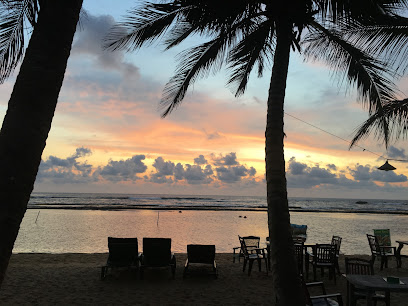
Red Lobster Restaurant
Experience delectable seafood dishes infused with Russian flavors at Red Lobster Restaurant in Kalutara – a family-friendly dining gem.
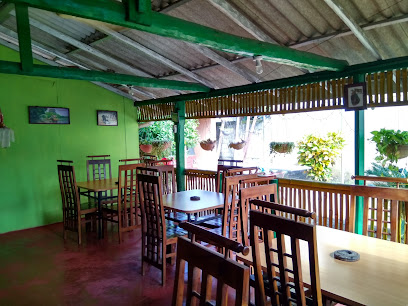
Markets, malls and hidden boutiques
Bundala National Park
Discover the breathtaking biodiversity and stunning landscapes of Bundala National Park, a nature lover's paradise in Sri Lanka.
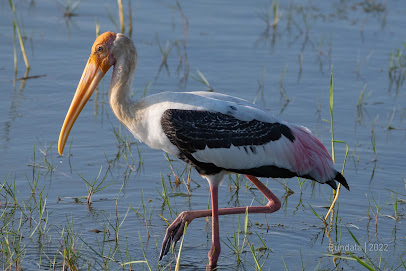
Bundala Safari with Srimal
Experience the thrill of wildlife encounters at Bundala Safari, an enchanting wildlife park in Sri Lanka's breathtaking landscapes.
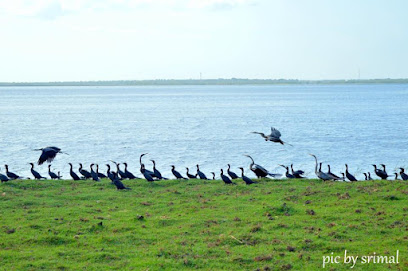
Amila Communication and Book shop
Explore the literary treasures of Amila Communication and Book Shop in Weligatta, where local culture and literature come together in a charming setting.
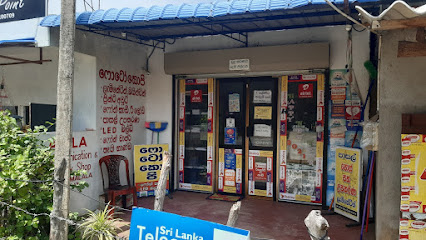
Ubeywarna Stores & Bakery
Explore the authentic flavors of Pallemalla at Ubeywarna Stores & Bakery, where delightful treats meet local culinary traditions.
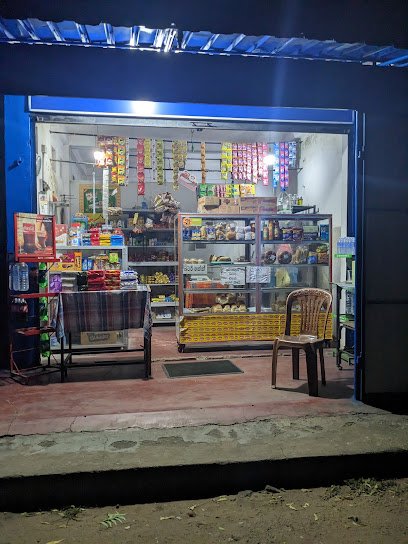
Buddhika Sounds
Immerse yourself in the vibrant musical culture at Buddhika Sounds, Weerawila's premier music store offering instruments and local talent.

Sajidh Spices Shop
Explore Sajidh Spices Shop in Weerawila for authentic Sri Lankan spices and immerse yourself in a colorful world of flavors.

Bundala safari
Discover the breathtaking wildlife at Bundala Safari, a hidden gem in Sri Lanka's natural landscape, perfect for adventurous souls and nature enthusiasts.
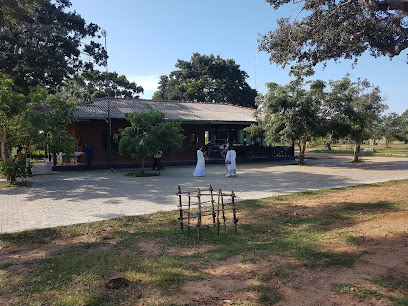
W.G.Buddika prasanga
Discover the artistry of Sri Lankan furniture at W.G. Buddika Prasanga in Yahangala West, where tradition meets modern design.
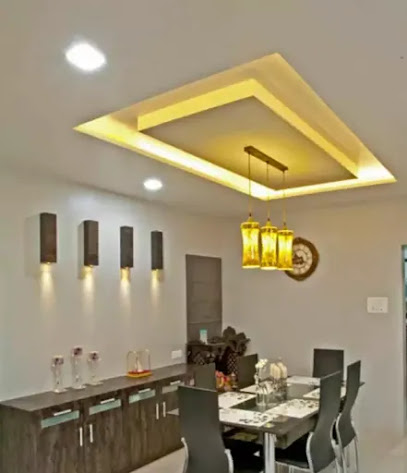
සභාපති කඩය - Sabhapathi stores
Experience authentic local shopping at Sabhapathi Stores in Weerawila, where the vibrant culture and community come together in a charming store.

කාවින්ද ස්ටෝර්ස්
Explore the vibrant culture and unique crafts at කාවින්ද ස්ටෝර්ස් in Weerawila, a perfect stop for authentic Sri Lankan souvenirs.

KANDYGS YALA - Souvenir & Gift Shop
Discover unique souvenirs and handcrafted gifts at Kandygs Yala, a charming gift shop in Kirinda, reflecting the rich culture of Sri Lanka.
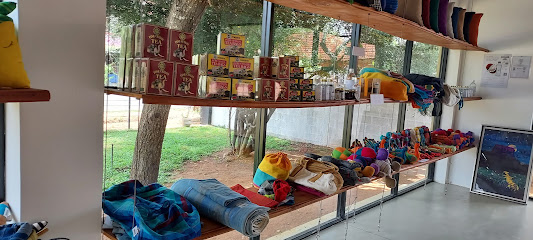
saduni Clothing
Explore the vibrant styles of Saduni Clothing, where local culture meets contemporary fashion in Weerawila.

Nandasena Stores
Explore the vibrant offerings of Nandasena Stores in Weligatta, where local culture meets diverse shopping experiences.

R & R Fancy Point
Discover local treasures at R & R Fancy Point, your perfect shopping stop along the scenic Colombo-Galle Highway.
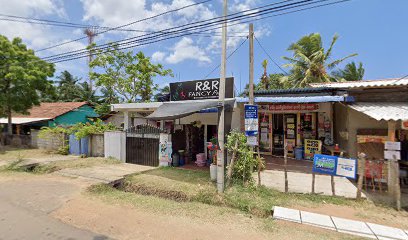
Milinda stores
Discover the charm of Weerawila at Milinda Stores, your go-to shop for authentic Sri Lankan souvenirs and local products.
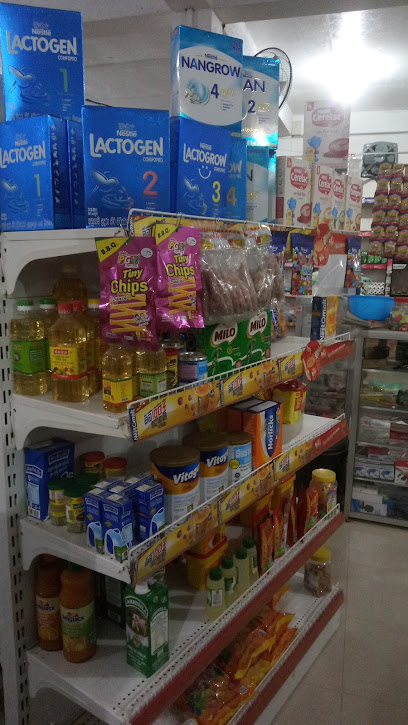
Essential bars & hidden hideouts
Bundala national park
Explore the rich biodiversity and stunning landscapes of Bundala National Park, a wildlife paradise for nature lovers and bird watchers in Sri Lanka.
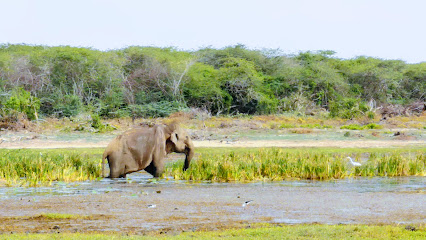
The Clamshell
Experience the best of Sri Lankan seafood at The Clamshell, a top restaurant in Hambantota offering a delightful dining atmosphere.
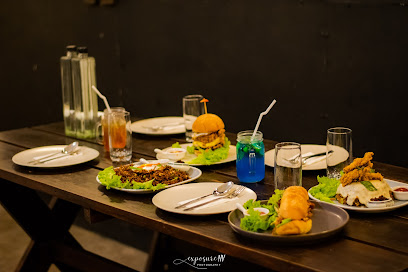
The Best Beach Bar
Experience the ultimate beachside relaxation at The Best Beach Bar in Tangalle, where stunning views and delicious drinks await.
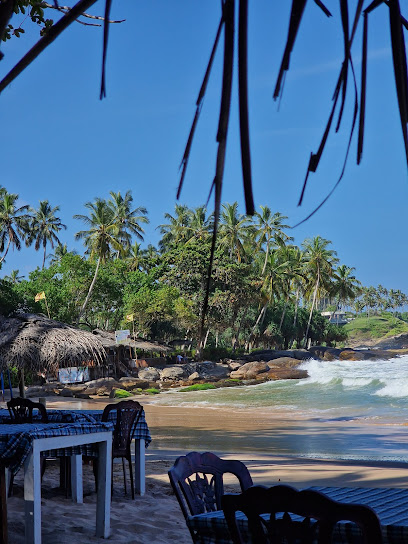
Shangri-La Pool Bar
Experience the ultimate relaxation at Shangri-La Pool Bar, where stunning views meet exquisite cocktails in a tropical paradise.
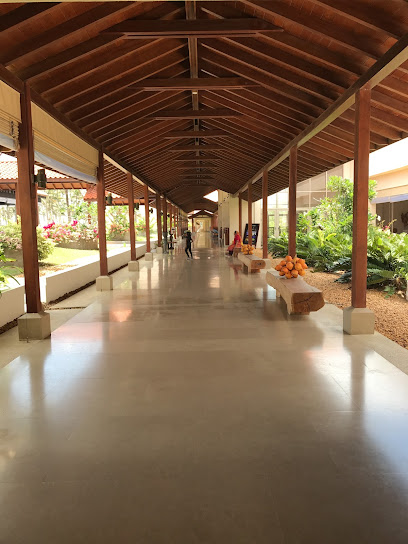
Doctor’s Bar
Discover the coastal charm and culinary delights at Doctor’s Bar in Tangalle, where local flavors meet international cuisine in a vibrant setting.
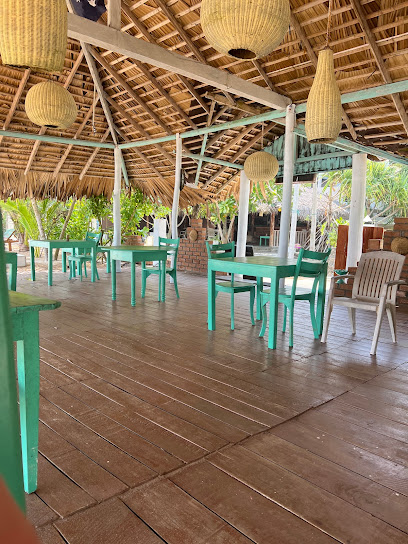
Niwahana
Discover the flavors of Sri Lanka at Niwahana, a charming restaurant in Weerawila offering authentic local cuisine in a serene setting.
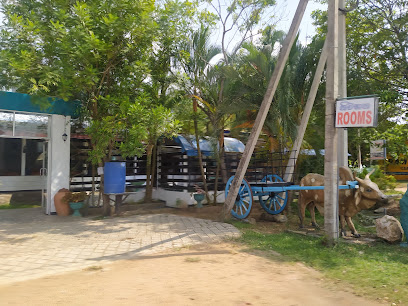
Bundala flamingo cottages
Discover the serene beauty and wildlife adventures at Bundala Flamingo Cottages in Weligatta, a perfect escape for nature enthusiasts.
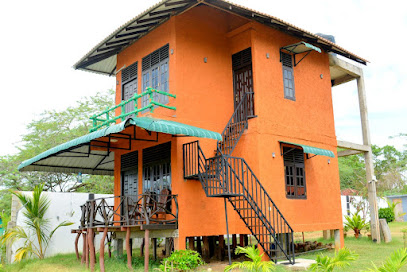
Dinujaya wine stores
Explore the vibrant wine culture at Dinujaya Wine Stores, a delightful bar in Tissamaharama offering exquisite local wines and a warm atmosphere.
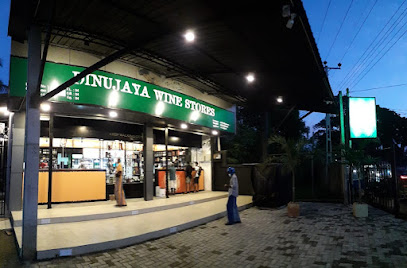
Royal Wine Stores
Experience the vibrant atmosphere and exquisite drink selection at Royal Wine Stores in Hambantota, a must-visit bar for every traveler.

Ranketha Restaurant & Bar
Discover the perfect blend of local and international cuisine at Ranketha Restaurant & Bar, where vibrant flavors and a lively atmosphere await.
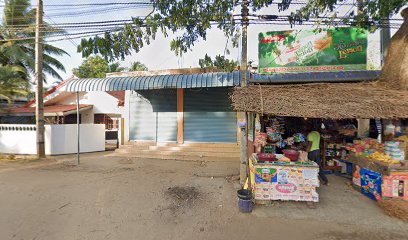
Thanamalwila Wine Stores - තණමල්විල වයින් ස්ටෝර්ස්
Experience the charm of Thanamalwila Wine Stores, a cozy bar offering a delightful selection of wines and a warm atmosphere in Sri Lanka.
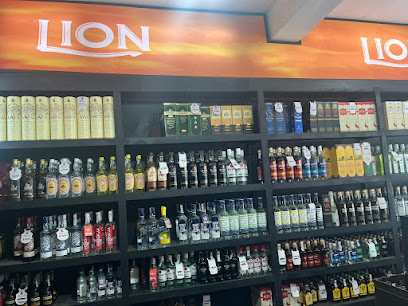
Suranga Restaurant & Bar
Discover the vibrant flavors of Sri Lanka at Suranga Restaurant & Bar, where local cuisine meets a warm and inviting atmosphere.
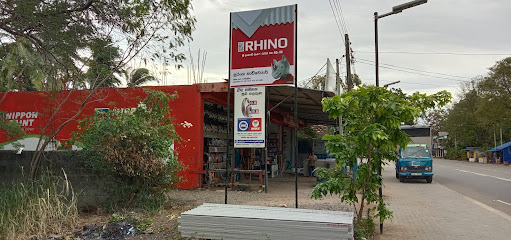
Lahiru Indunil Magama,Tissamaharamaya.....
Discover the vibrant nightlife of Tissamaharamaya at Lahiru Indunil Magama, where local flavors and friendly vibes await you.
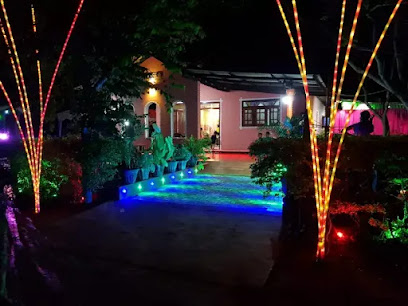
Bar
Discover the vibrant bar scene in Debarawewa, where refreshing drinks and lively atmosphere await every visitor.
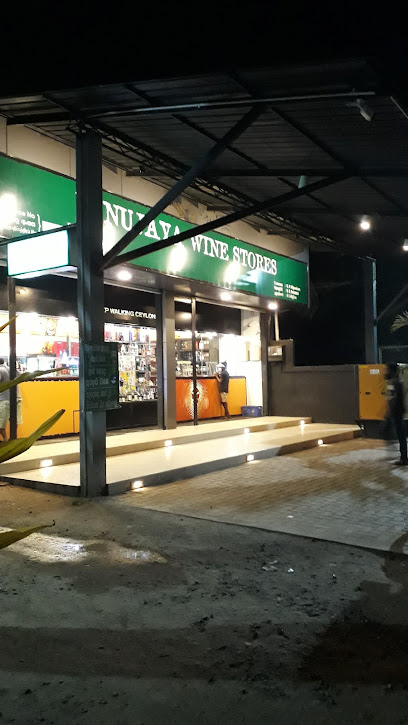
Local Phrases about Bundala National Park
-
- Helloහාත්
[haat] - Goodbyeවිනාඩියා
[vinadhiya] - Yesඔව්
[ow] - Noනෑ
[ne] - Please/You're welcomeකරදන්/ආයුබෝවන්
[karadhan/ayubowan] - Thank youඔබේ ස්තූතියි
[obey sthuthiyi] - Excuse me/Sorryසමාවීමට/කිසිවෙන්න
[samawimata/kisivenna] - How are you?ඔබ කොහොමද?
[oba kohomada?] - Fine. And you?හොඳින්. ඔබ කොහොමද?
[hodin. oba kohomada?] - Do you speak English?ඔයා ඉංග්රීසි කතා කරනවාද?
[oyā iṅgrīsi kathā karanavāda?] - I don't understandමට දත්ත නොවනවා
[mata dattha nowanavā]
- Helloහාත්
-
- I'd like to see the menu, pleaseකරුණාකර මෙනුසදිද බලනවා
[karunākara menuṣadiya balanavā] - I don't eat meatමම මස් කරනවානම්
[mama mas karanavānam] - Cheers!සුභපැතුම්!
[subhapathum] - I would like to pay, pleaseකරුණාකර ගෙවනවා
[karunākara gewanavā]
- I'd like to see the menu, pleaseකරුණාකර මෙනුසදිද බලනවා
-
- Help!උකුණු!
[ukunu] - Go away!ඉක්මන්ටෙනවා!
[ikmanthenavā] - Call the Police!පෙලිස් කරනවා!
[pelis karanavā] - Call a doctor!වෛරස් කරනවා!
[vāras karanavā] - I'm lostමම අහිමිනවා
[mama ahiminavā] - I'm illමම අසාරුනවා
[mama asarunavā]
- Help!උකුණු!
-
- I'd like to buy...මම මිලදී ගෙනාවෙනවා...
[mama midī genawenavā...] - I'm just lookingමම දන්න ගියවෙනවා
[mama dannagiwenavā] - How much is it?එය කොහේද?
[eya kohedā?] - That's too expensiveඑය ඉතාට ගොඩන්නාවෙද?
[eya itāta godanawedā?] - Can you lower the price?ඔබට පරිමාණය කරනවාද?
[obata parimanaya karanavāda?]
- I'd like to buy...මම මිලදී ගෙනාවෙනවා...
-
- What time is it?වේලාව කුමක්ද?
[wēlāva kumakda?] - It's one o'clockඑකටම වේලාවයි
[ekatama wēlāvayi] - Half past (10)බත් පැයට (දෙහළ)
[batha pāyata (dehala)] - Morningඋදේවල
[udewala] - Afternoonපෙ.ව.
[pe.va.] - Eveningසදුදා
[sadudā] - Yesterdayඊයේ
[īyē] - Todayඅද
[ada] - Tomorrowහෙට
[heta] - 1එක
[eka] - 2දෙක
[deka] - 3තුන
[thuna] - 4හතලි
[hathali] - 5පහ
[paha] - 6හය
[haya] - 7හත
[hatha] - 8අශෙව
[asheva] - 9නවය
[navaya] - 10දහය
[dahaya]
- What time is it?වේලාව කුමක්ද?
-
- Where's a/the...?එකට/එකෙනෙකු... කොහෙද?
[ekata/ekeneḳu... kohe da?] - What's the address?ලිපිනය කුමක්ද?
[lipinaya kumakda?] - Can you show me (on the map)?ඔබ මට (සිතියෙන්) පෙන්වනවාද?
[oba mata (sithiyen) penwanavāda?] - When's the next (bus)?ඊළඟ (බස්) කොහෙද?
[īlaṅga (bass) kohe da?] - A ticket (to ....)ප්රාදේ එකක් (එකෙනෙකුට)
[prādē ekak (ekeneḳut)]
- Where's a/the...?එකට/එකෙනෙකු... කොහෙද?
History of Bundala National Park
-
Bundala National Park has evidence of ancient human settlements dating back to the Mesolithic period. Archaeological findings suggest that early humans utilized the abundant resources of this wetland region for sustenance and shelter.
-
During the colonial period, Bundala's natural resources, including its salt pans and wildlife, were heavily exploited by the British. The salt pans, in particular, became an important source of revenue for the colonial administration.
-
Bundala was declared a wildlife sanctuary in 1969, marking a significant step towards the conservation of its unique ecosystems and diverse species. This move was driven by the need to protect the area from increasing human encroachment and exploitation.
-
In 1990, Bundala National Park was designated as a Ramsar Wetland of International Importance. This recognition highlighted the park's critical role in supporting a wide variety of migratory and resident bird species, as well as its rich biodiversity.
-
In 2005, Bundala National Park was declared a UNESCO Biosphere Reserve. This designation emphasized the park's global significance and the need for sustainable management practices to balance conservation efforts with the needs of local communities.
-
Bundala has long been intertwined with the cultural practices of local communities, particularly the fishing and farming communities that have lived in harmony with the park's natural resources for generations. Their traditional knowledge and practices are integral to the park's heritage.
Bundala National Park Essentials
-
Bundala National Park is located in the Hambantota District of the Southern Province of Sri Lanka. The nearest international airport is Mattala Rajapaksa International Airport, approximately 45 kilometers away. From the airport, you can take a taxi or arrange for a private transfer to the park. Alternatively, Colombo's Bandaranaike International Airport is around 250 kilometers away, and you can reach Bundala via a combination of train, bus, and taxi. The journey from Colombo typically takes around 4 to 5 hours by road.
-
Within Bundala National Park, the primary mode of transportation is by safari jeep, which is necessary to fully explore the park's diverse habitats and wildlife. These can be arranged through local tour operators or your accommodation. For traveling around the nearby towns, tuk-tuks and taxis are readily available. Public buses also connect the nearby towns, but they may not be the most convenient option for reaching the park directly.
-
The official currency in Sri Lanka is the Sri Lankan Rupee (LKR). Credit cards are accepted in some hotels, restaurants, and larger shops, but it's advisable to carry cash, especially for smaller establishments and local markets. ATMs are available in nearby towns such as Hambantota, so it's wise to withdraw sufficient cash before heading to the park. Ensure you have small denominations for tips and minor purchases.
-
Bundala National Park is generally a safe destination for tourists. However, it is always prudent to take standard precautions. Avoid walking alone at night in unfamiliar areas and keep your belongings secure, especially in crowded places. There are no specific high-crime areas targeting tourists in the vicinity of the park, but it's always best to stay vigilant and aware of your surroundings.
-
In case of emergency, dial 119 for police assistance or 110 for an ambulance. The nearest medical facilities are in Hambantota, approximately 20 kilometers away. It is recommended to have travel insurance that covers medical emergencies. For minor health issues, there are pharmacies in nearby towns where you can purchase over-the-counter medications. Always inform your tour guide or accommodation provider if you need emergency assistance.
-
Fashion: Do wear light, breathable clothing and a hat to protect yourself from the sun. Avoid wearing bright colors that may disturb wildlife. Religion: Do respect local customs and traditions. When visiting any religious sites, dress modestly and remove footwear. Public Transport: Do be polite and patient when using public transport. Don't expect punctuality, as schedules can be variable. Greetings: Do greet people with a smile and a friendly 'Ayubowan' (hello). Handshakes are common, but always use your right hand. Eating & Drinking: Do try local Sri Lankan cuisine and accept food offerings graciously. Don't waste food, as it is considered disrespectful.
-
To experience Bundala National Park like a local, try to join a guided tour with a knowledgeable naturalist who can point out hidden wildlife and explain the park's ecosystem. Visit early in the morning or late in the afternoon when animals are most active. Engage with local fishermen and learn about their traditional methods. Don't miss the opportunity to see the diverse birdlife, especially during the migratory season from September to March. For a unique experience, consider staying in eco-friendly lodges that offer a closer connection to nature.
Nearby Cities to Bundala National Park
-
Things To Do in Matara
-
Things To Do in Mirissa
-
Things To Do in Nuwara Eliya
-
Things To Do in Unawatuna
-
Things To Do in Galle
-
Things To Do in Hikkaduwa
-
Things To Do in Bentota
-
Things To Do in Kandy
-
Things To Do in Colombo
-
Things To Do in Negombo
-
Things To Do in Polonnaruwa
-
Things To Do in Sigiriya
-
Things To Do in Anuradhapura
-
Things To Do in Trincomalee
-
Things To Do in Jaffna







